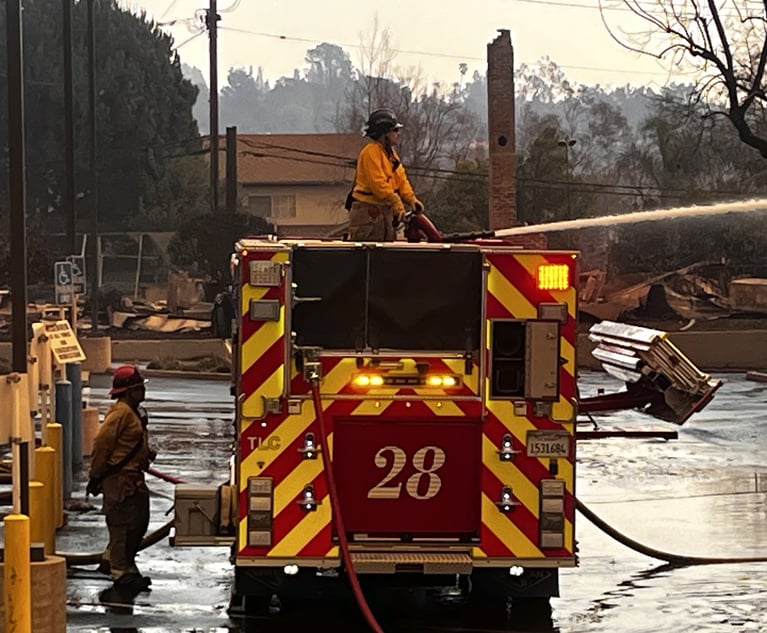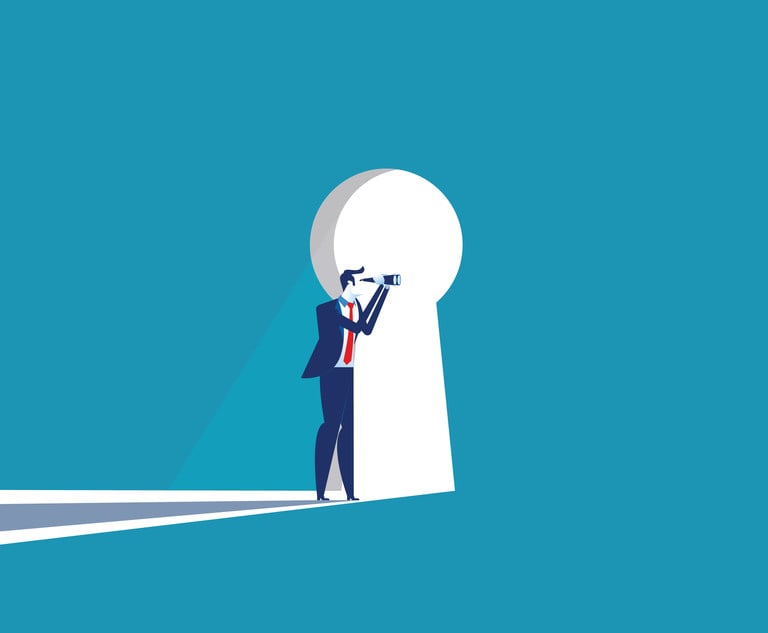 Credit: Raquel Aparicio Torinos.
Credit: Raquel Aparicio Torinos. The 2018 Pro Bono Scorecard
Our in-depth report on the year in pro bono, including our annual ranking of the best firms at giving back.
June 27, 2018 at 12:32 PM
3 minute read
There were more reasons than ever for lawyers to turn their attention to pro bono work in 2017. In the wake of the 2016 U.S. election, political turmoil—in the form of travel bans and military bans and gerrymandering and so many other hot-button issues—drove lawyers to use their skills to fight for clients in need. Along the way, the Am Law 200 turned in more than 5 million hours of pro bono work.
As our Pro Bono Survey shows, in the form of a series of rankings that details the year's efforts from every angle, the nation's largest firms brought their resources to bear in 2017. And as the stories that comprise this package show, those resources made a difference. Lawyers helped deliver justice to individuals and groups that might not have found it otherwise, and in the process they came together as a profession to remind one another about the importance of pro bono work.


Big Law attorneys found plenty of cases to sink their time into last year, whether they involved veterans' rights, civil rights, gender equity in athletics or any number of other issues. Our slideshow recounts 16 of the most engaging engagements.



This content has been archived. It is available through our partners, LexisNexis® and Bloomberg Law.
To view this content, please continue to their sites.
Not a Lexis Subscriber?
Subscribe Now
Not a Bloomberg Law Subscriber?
Subscribe Now
NOT FOR REPRINT
© 2025 ALM Global, LLC, All Rights Reserved. Request academic re-use from www.copyright.com. All other uses, submit a request to [email protected]. For more information visit Asset & Logo Licensing.
You Might Like
View All
LA-Area Law Firms Offer Support as Region Reckons With Raging Wildfires



K&L Gates Attorneys Have Put 28,000 Hours Toward Stamping Out Revenge Porn in Past Decade
5 minute readTrending Stories
- 1UK Firm Womble Bond to Roll Out AI Tool Across Whole Firm
- 2Starbucks Hands New CLO Hefty Raise, Says He Fosters 'Environment of Courage and Joy'
- 3Blockchain’s Fourth and Fifth Amendment Privacy Paradoxes
- 4Prior Written Notice: Calabrese v. City of Albany
- 5Learning From Experience: The Best and Worst of Years Past
Who Got The Work
J. Brugh Lower of Gibbons has entered an appearance for industrial equipment supplier Devco Corporation in a pending trademark infringement lawsuit. The suit, accusing the defendant of selling knock-off Graco products, was filed Dec. 18 in New Jersey District Court by Rivkin Radler on behalf of Graco Inc. and Graco Minnesota. The case, assigned to U.S. District Judge Zahid N. Quraishi, is 3:24-cv-11294, Graco Inc. et al v. Devco Corporation.
Who Got The Work
Rebecca Maller-Stein and Kent A. Yalowitz of Arnold & Porter Kaye Scholer have entered their appearances for Hanaco Venture Capital and its executives, Lior Prosor and David Frankel, in a pending securities lawsuit. The action, filed on Dec. 24 in New York Southern District Court by Zell, Aron & Co. on behalf of Goldeneye Advisors, accuses the defendants of negligently and fraudulently managing the plaintiff's $1 million investment. The case, assigned to U.S. District Judge Vernon S. Broderick, is 1:24-cv-09918, Goldeneye Advisors, LLC v. Hanaco Venture Capital, Ltd. et al.
Who Got The Work
Attorneys from A&O Shearman has stepped in as defense counsel for Toronto-Dominion Bank and other defendants in a pending securities class action. The suit, filed Dec. 11 in New York Southern District Court by Bleichmar Fonti & Auld, accuses the defendants of concealing the bank's 'pervasive' deficiencies in regards to its compliance with the Bank Secrecy Act and the quality of its anti-money laundering controls. The case, assigned to U.S. District Judge Arun Subramanian, is 1:24-cv-09445, Gonzalez v. The Toronto-Dominion Bank et al.
Who Got The Work
Crown Castle International, a Pennsylvania company providing shared communications infrastructure, has turned to Luke D. Wolf of Gordon Rees Scully Mansukhani to fend off a pending breach-of-contract lawsuit. The court action, filed Nov. 25 in Michigan Eastern District Court by Hooper Hathaway PC on behalf of The Town Residences LLC, accuses Crown Castle of failing to transfer approximately $30,000 in utility payments from T-Mobile in breach of a roof-top lease and assignment agreement. The case, assigned to U.S. District Judge Susan K. Declercq, is 2:24-cv-13131, The Town Residences LLC v. T-Mobile US, Inc. et al.
Who Got The Work
Wilfred P. Coronato and Daniel M. Schwartz of McCarter & English have stepped in as defense counsel to Electrolux Home Products Inc. in a pending product liability lawsuit. The court action, filed Nov. 26 in New York Eastern District Court by Poulos Lopiccolo PC and Nagel Rice LLP on behalf of David Stern, alleges that the defendant's refrigerators’ drawers and shelving repeatedly break and fall apart within months after purchase. The case, assigned to U.S. District Judge Joan M. Azrack, is 2:24-cv-08204, Stern v. Electrolux Home Products, Inc.
Featured Firms
Law Offices of Gary Martin Hays & Associates, P.C.
(470) 294-1674
Law Offices of Mark E. Salomone
(857) 444-6468
Smith & Hassler
(713) 739-1250










